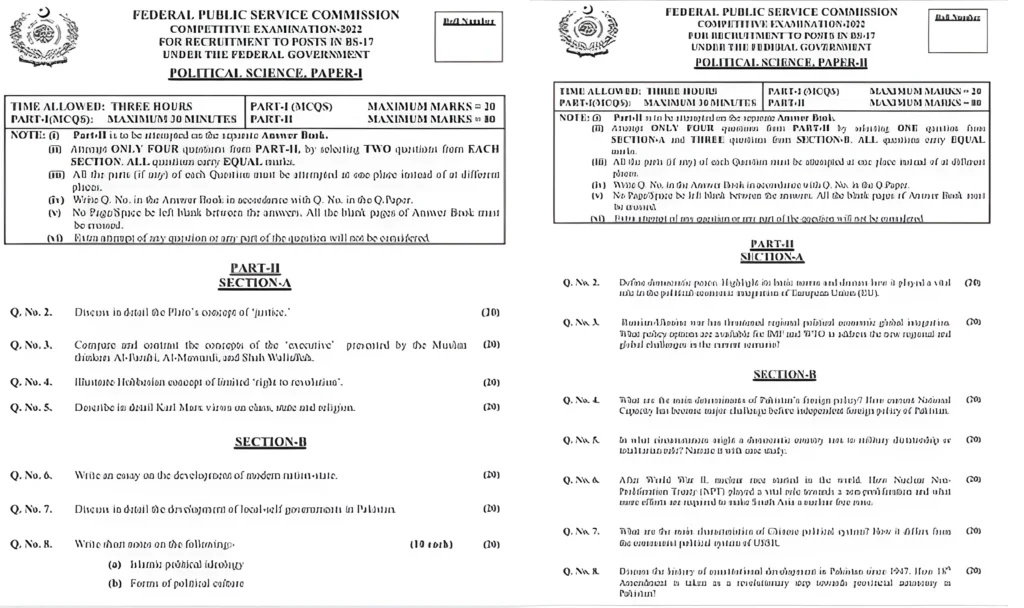Table of Contents
TogglePOLITICAL SCIENCE 2022
PAPER-I
Section-A
Q. No. 2. Discuss in detail the Plato’s concept of “justice.” (20 marks)
Q. No. 3. Compare and contrast the concepts of the ‘executive’ presented by the Muslim thinkers Al-Farabi, Al-Mawardi, and Shah Waliullah. (20 marks)
Q. No. 4. Illustrate the Hobbesian concept of limited ‘right to revolution’. (20 marks)
Q. No. 5. Describe in detail Karl Marx’s views on class, state, and religion. (20 marks)
Section-B
Q. No. 6. Write an essay on the development of the modern nation-state. (20 marks)
Q. No. 7. Discuss in detail the development of local self-governments in Pakistan. (20 marks)
Q. No. 8. Write short notes on the following:- (10 marks each)
- Islamic political ideology
- Forms of political culture
Paper II
Section-A
Q. No. 2. Define democratic peace. Highlight its basic norms and discuss how it played a vital role in the political-economic integration of the European Union (EU). (20 marks)
Q. No. 3. The Russia-Ukraine war has threatened regional political economic global integration. What policy options are available for IMF and WTO to address the new regional and global challenges in the current scenario? (20 marks)
Section-B
Q. No. 4. What are the main determinants of Pakistan’s foreign policy? How current National Capacity has become a major challenge before an independent foreign policy of Pakistan. (20 marks)
Q. No. 5. In what circumstances might a democratic country turn into a military dictatorship or totalitarian rule? Narrate it with a case study. (20 marks)
Q. No. 6. After World War II, the nuclear race started in the world. How Nuclear Non-Proliferation Treaty (NPT) played a vital role towards non-proliferation and what efforts are required to make South Asia a nuclear-free zone. (20 marks)
Q. No. 7. What are the main characteristics of the Chinese political system? How does it differ from the communist politics of the USSR? (20 marks)
Q. No. 8. Discuss the history of constitutional development in Pakistan since 1947. How 18th Amendment is taken as a revolutionary step towards provincial autonomy in Pakistan? (20 marks)
